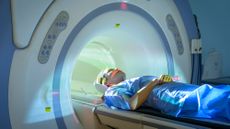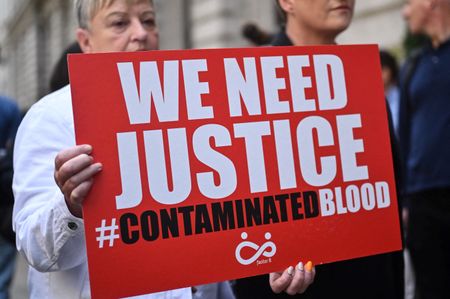New Alzheimer's drug rejected: is Nice being nasty?
Health watchdog has announced lecanemab will be denied to NHS patients on cost grounds

"I am personally familiar with the horrors of Alzheimer's," said Catherine Pepinster in The Daily Telegraph: it's a disease my mother suffered from. So I was delighted to hear last week that the first drug found to slow down the onset of the condition had been approved for use in the UK. No sooner had this good news emerged, though, than the health watchdog Nice announced that the drug would be denied to NHS patients on cost grounds.
Trials have shown that 70,000 people in England with early-stage Alzheimer's might have been eligible for treatment with lecanemab, the drug in question, at a cost of £30,000 a year per patient – adding up to a total potential bill of some £2.1bn. Granted, that's a lot of money, but the NHS spends more than three times as much each year treating obesity. "Expensive surgeries like gastric bypasses are not withheld from the morbidly overweight. So why is a drug that could transform elderly lives neglected?"
At first glance, this may seem like "a kick in the teeth for patients", said Clare Wilson on the i news site, but Nice's decision is not driven by mere penny-pinching. For one thing, the benefits from lecanemab – which has to be administered through fortnightly infusions in hospital – are comparatively modest. The clinical trials involved giving patients complex memory tests and assessments, scoring them on a scale from nought to 18, with higher scores meaning worse memory problems. After 18 months, the scores of people receiving placebo infusions rose by an average of 1.7 points, while the scores of those on lecanemab rose by 1.2 points – not much of a difference. The drug can also cause side effects such as small brain bleeds. The money it would cost to provide lecanemab on the NHS would be better spent on treating Alzheimer's patients' symptoms, or providing sufferers with more support from social services and home nurses.
Subscribe to The Week
Escape your echo chamber. Get the facts behind the news, plus analysis from multiple perspectives.

Sign up for The Week's Free Newsletters
From our morning news briefing to a weekly Good News Newsletter, get the best of The Week delivered directly to your inbox.
From our morning news briefing to a weekly Good News Newsletter, get the best of The Week delivered directly to your inbox.
A balance clearly has to be struck with every drug, said The Independent, but it's sad that only those who can afford to go private stand to benefit from this one. Any delay in the progression of Alzheimer's is priceless for patients – and for their families, whose interests did not feature in Nice's cost-benefit analysis. The sole consolation is that lecanemab is likely to be the first of many such drugs to appear on the market, whose costs are likely to fall over time.
In fact NHS England is currently considering 27 other Alzheimer's drugs, said Oliver Duff on the i news site: these are in advanced trials and could well be approved in the next few years. "Humanity is making progress against this appalling disease, finally unravelling the mysteries of the brain."
Sign up for Today's Best Articles in your inbox
A free daily email with the biggest news stories of the day – and the best features from TheWeek.com
-
 When the insurer says ‘no’
When the insurer says ‘no’Feature Health insurance companies appear to be denying a growing share of patient claims. Why?
By The Week US Published
-
 Foreign aid: The human toll of drastic cuts
Foreign aid: The human toll of drastic cutsFeature The assault has 'stunned' nonprofits whose efforts to fight hunger, disease, and instability are now shuttering
By The Week US Published
-
 Romania's election chaos risks international fallout
Romania's election chaos risks international falloutIN THE SPOTLIGHT By barring far-right candidate Calin Georgescu from the country's upcoming electoral re-do, Romania places itself in the center of a broader struggle over European ultra-nationalism
By Rafi Schwartz, The Week US Published
-
 Bird flu: The viral threat pushing up egg prices
Bird flu: The viral threat pushing up egg pricesFeature
By The Week US Published
-
 The great baby bust
The great baby bustThe Explainer The fertility rate is falling sharply in the UK and across the world, a trend with major economic and societal consequences
By The Week UK Published
-
 Doctor's orders
Doctor's ordersOpinion The surgeon general wants a warning label on social media for teens — but why stop there?
By Theunis Bates Published
-
 The hollow classroom
The hollow classroomOpinion Remote school let kids down. It will take much more than extra tutoring for kids to recover.
By Mark Gimein Published
-
 The lows of an unregulated high: Teens are using marijuana alternative delta-8
The lows of an unregulated high: Teens are using marijuana alternative delta-8In the Spotlight More than 1 in 10 high school seniors have reported using the substance, which contains concentrated THC
By Justin Klawans, The Week US Published
-
 The contaminated blood scandal
The contaminated blood scandalThe Explainer Widely regarded as the worst treatment disaster in the history of the NHS, the public inquiry is due to publish its report in May
By The Week UK Published
-
 Workplace wellness programmes: a waste of time and money?
Workplace wellness programmes: a waste of time and money?Talking Point Global corporate industry is booming but positive impact on staff well-being is debatable
By Harriet Marsden, The Week UK Published
-
 Magic mushrooms and the mind
Magic mushrooms and the mindThe Explainer A growing number of states and cities are legalizing the use of psychedelic fungi in therapy. Some experts think that’s a big risk.
By The Week US Published